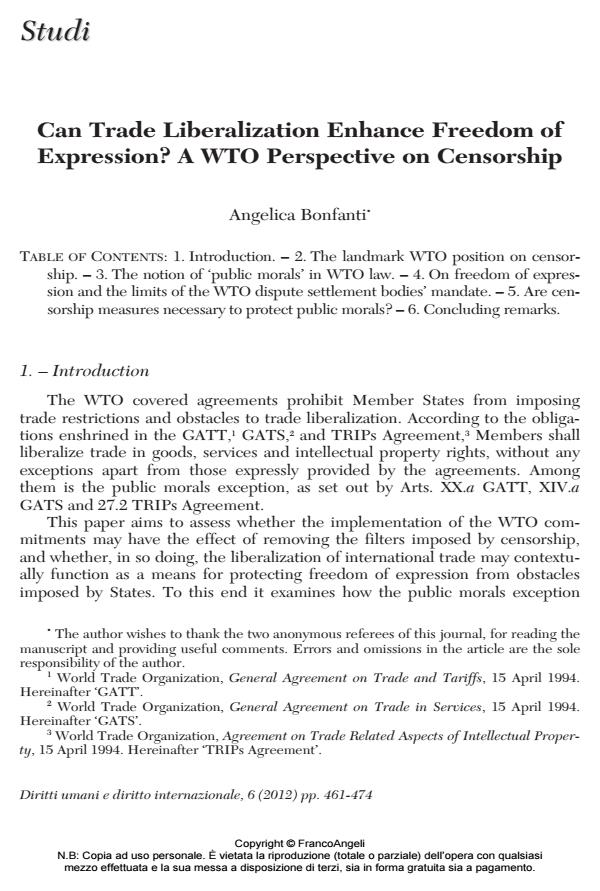Can Trade Liberalization Enhance Freedom of Expression? A WTO Perspective on Censorship
Journal title DIRITTI UMANI E DIRITTO INTERNAZIONALE
Author/s Angelica Bonfanti
Publishing Year 2012 Issue 2012/3 Language English
Pages 14 P. 461-474 File size 124 KB
DOI 10.3280/DUDI2012-003001
DOI is like a bar code for intellectual property: to have more infomation
click here
Below, you can see the article first page
If you want to buy this article in PDF format, you can do it, following the instructions to buy download credits

FrancoAngeli is member of Publishers International Linking Association, Inc (PILA), a not-for-profit association which run the CrossRef service enabling links to and from online scholarly content.
Pursuant to their WTO commitments, Member States shall liberalize trade in goods, services and intellectual property rights, without any exceptions apart from those expressly provided by the covered agreements. Among them is the public morals exception. This paper aims to assess whether the implementation of the WTO commitments may have the effect of removing the filters imposed by some States through censorship, and whether the liberalization of international trade may contextually function as a means for enhancing freedom of expression. In so doing the paper examines how the public morals exception should be interpreted when censorship measures, on the one hand, and human rights protection, on the other, are at stake.
Angelica Bonfanti, Can Trade Liberalization Enhance Freedom of Expression? A WTO Perspective on Censorship in "DIRITTI UMANI E DIRITTO INTERNAZIONALE" 3/2012, pp 461-474, DOI: 10.3280/DUDI2012-003001